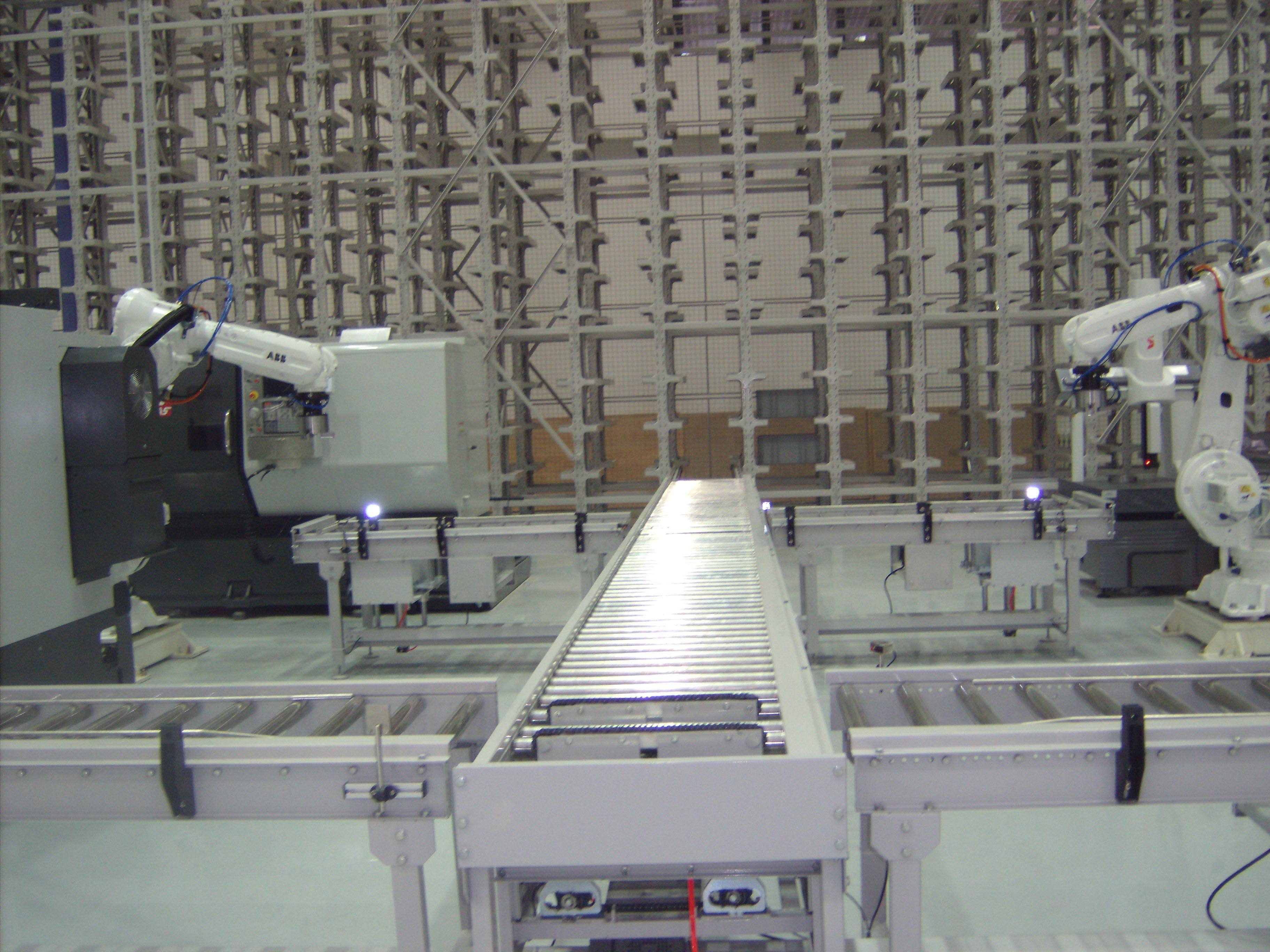
{{ lang?'快速选择':'Quick select' }}:
随着科技的飞速发展,自动化智能控制系统在工业、农业、服务业等各个领域的应用越来越广泛。本文将介绍自动化智能控制系统的相关概念、技术和应用场景,旨在帮助读者更好地了解这一领域的最新发展。
一、自动化智能控制系统的定义和概述
自动化智能控制系统是指在传统控制系统的基础上,引入人工智能、物联网、大数据等技术,实现更加精准、高效、智能的控制和管理。它结合了自动化、智能化、网络化等多种技术手段,可以根据环境变化和实际需求进行自适应调整,提高生产效率和管理水平。
二、自动化智能控制系统的技术原理
神经网络:神经网络是一种模拟人脑神经元结构的计算模型,能够模拟人类的认知和学习能力。在自动化智能控制系统中,神经网络可以通过学习和训练,实现对复杂过程的控制和优化。
遗传算法:遗传算法是一种基于生物进化原理的优化算法,能够在短时间内寻找到问题的最优解。在自动化智能控制系统中,遗传算法可以用于优化控制策略,提高系统的性能和稳定性。
深度学习:深度学习是一种基于神经网络的机器学习技术,可以通过对大量数据的训练,提高模型的推断能力和泛化性能。在自动化智能控制系统中,深度学习可以用于模式识别、故障检测等任务,提高系统的智能化水平。

三、自动化智能控制系统的应用场景
工业领域:在工业领域,自动化智能控制系统可以应用于生产线、加工设备、机器人等方面。例如,通过引入神经网络和遗传算法,可以实现生产过程的优化和控制,提高生产效率和产品质量。
农业领域:在农业领域,自动化智能控制系统可以应用于农田灌溉、作物种植、畜牧养殖等方面。例如,通过引入物联网和大数据技术,可以实现智能化农业管理,提高农业生产效率和经济效益。
服务业领域:在服务业领域,自动化智能控制系统可以应用于客户服务、物流管理、医疗卫生等方面。例如,通过引入深度学习和自然语言处理技术,可以实现智能客服和智能医疗,提高服务水平和效率。
四、未来展望
随着科技的不断进步,自动化智能控制系统将迎来更加广阔的发展前景。未来,我们可以预见到以下几个方面的趋势:
多元化融合:未来的自动化智能控制系统将更加注重多种技术的融合应用,实现技术之间的优势互补,提高系统的性能和稳定性。
智能化升级:未来的自动化智能控制系统将更加注重智能化升级,实现更加自主的学习和适应能力,更好地满足实际需求。
绿色可持续发展:未来的自动化智能控制系统将更加注重环保和可持续发展,减少对环境的影响和资源浪费,推动工业文明和生态文明协调发展。
五、结论
自动化智能控制系统是当前科技发展的一个重要方向,具有广泛的应用前景和市场前景。本文介绍了自动化智能控制系统的相关概念、技术和应用场景,并展望了未来的发展趋势。通过引入人工智能、物联网、大数据等技术,自动化智能控制系统可以实现更加精准、高效、智能的控制和管理,提高生产效率和管理水平,推动经济发展和社会进步。因此,我们应该重视自动化智能控制系统的研究和应用,为其发展提供更多的支持和资源投入。
With the rapid development of technology, the application of automated intelligent control systems in various fields such as industry, agriculture, and service industry is becoming increasingly widespread. This article will introduce the relevant concepts, technologies, and application scenarios of automated intelligent control systems, aiming to help readers better understand the latest developments in this field.
1、 Definition and Overview of Automated Intelligent Control Systems
Automated intelligent control system refers to the introduction of technologies such as artificial intelligence, Internet of Things, and big data on the basis of traditional control systems to achieve more accurate, efficient, and intelligent control and management. It combines various technological means such as automation, intelligence, and networking, and can adaptively adjust according to environmental changes and actual needs, improving production efficiency and management level.
2、 Technical principles of automated intelligent control systems
Neural Network: A neural network is a computational model that simulates the structure of neurons in the human brain, capable of simulating human cognitive and learning abilities. In automated intelligent control systems, neural networks can achieve control and optimization of complex processes through learning and training.
Genetic algorithm: Genetic algorithm is an optimization algorithm based on the principle of biological evolution, which can find the optimal solution to a problem in a short time. In automated intelligent control systems, genetic algorithms can be used to optimize control strategies, improve system performance and stability.
Deep learning: Deep learning is a machine learning technique based on neural networks that can improve the inference ability and generalization performance of models through training on a large amount of data. In automated intelligent control systems, deep learning can be used for tasks such as pattern recognition and fault detection to improve the intelligence level of the system.
3、 Application scenarios of automated intelligent control systems
Industrial field: In the industrial field, automated intelligent control systems can be applied to production lines, processing equipment, robots, and other aspects. For example, by introducing neural networks and genetic algorithms, optimization and control of the production process can be achieved, improving production efficiency and product quality.
Agriculture: In the field of agriculture, automated intelligent control systems can be applied to fields such as farmland irrigation, crop cultivation, animal husbandry, etc. For example, by introducing the Internet of Things and big data technology, intelligent agricultural management can be achieved, improving agricultural production efficiency and economic benefits.
Service industry: In the service industry, automated intelligent control systems can be applied to customer service, logistics management, healthcare, and other fields. For example, by introducing deep learning and natural language processing technologies, intelligent customer service and intelligent healthcare can be achieved, improving service levels and efficiency.
4、 Future outlook
With the continuous progress of technology, automated intelligent control systems will usher in broader development prospects. In the future, we can foresee the following trends:
Diversified integration: Future automated intelligent control systems will pay more attention to the integration and application of multiple technologies, achieving complementary advantages between technologies, and improving system performance and stability.
Intelligent upgrade: Future automated intelligent control systems will pay more attention to intelligent upgrade, achieve more autonomous learning and adaptability, and better meet practical needs.
Green and sustainable development: In the future, automated intelligent control systems will pay more attention to environmental protection and sustainable development, reduce environmental impact and resource waste, and promote the coordinated development of industrial civilization and ecological civilization.
5、 Conclusion
Automated intelligent control systems are an important direction of current technological development, with broad application prospects and market prospects. This article introduces the relevant concepts, technologies, and application scenarios of automated intelligent control systems, and looks forward to future development trends. By introducing technologies such as artificial intelligence, the Internet of Things, and big data, automated intelligent control systems can achieve more precise, efficient, and intelligent control and management, improve production efficiency and management level, and promote economic development and social progress. Therefore, we should attach importance to the research and application of automated intelligent control systems, providing more support and resource investment for their development.






